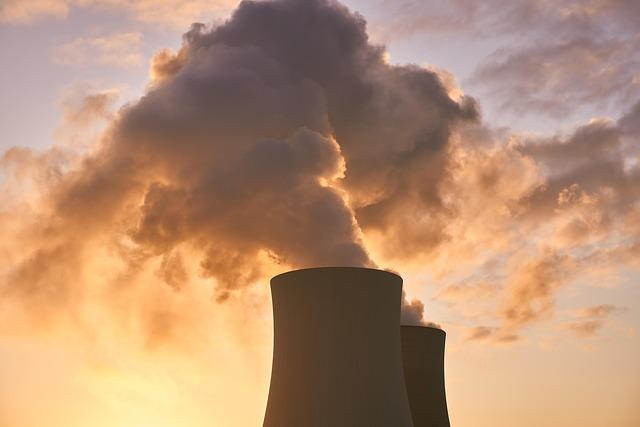The last remaining nuclear arms control treaty between the United States and Russia is approaching its expiration date, raising alarms about a potential escalation in the already tense relationship between the two global powers. As the deadline looms, former President Donald Trump and Russian President Vladimir Putin have exchanged a series of provocative statements, intensifying fears of a renewed arms race. The unraveling of this pivotal agreement marks a critical turning point in international security and nuclear diplomacy, with experts warning of serious consequences for global stability.
Last Nuclear Treaty Between US and Russia Faces Critical Expiration Date
As the clock ticks down toward the treaty’s expiration, diplomatic channels remain fraught with tension. Both Washington and Moscow have exchanged pointed remarks, signaling a hardening stance amid ongoing geopolitical strife. The pact, once hailed as a cornerstone of strategic arms control, currently faces unprecedented challenges that could reshape the global nuclear landscape. Key points of contention include:
- Verification mechanisms: Disputes over compliance and transparency have eroded trust between the two powers.
- Missile defense systems: Differences over the development and deployment of missile shields continue to fuel mutual suspicion.
- Geopolitical rivalries: Proxy conflicts and regional disputes exacerbate the fragile nature of negotiations.
Experts warn that failure to renew or replace the accord could spur a new arms race, undermining decades of progress on nuclear disarmament. The immediate future hinges on whether diplomatic efforts can prevail against a backdrop of assertive rhetoric and strategic posturing. Below is a comparison of the treaty’s key obligations and the current adherence status from each side:
| Provision | US Status | Russia Status |
|---|---|---|
| Limit on deployed warheads | Compliant | Compliant |
| Inspection rights | Restricted | Restricted |
| New weapon development | Contested | Contested |
| Data exchanges | Partial | Partial |
Escalating Rhetoric Between Trump and Putin Raises Global Security Concerns
Amidst the impending expiration of the final nuclear arms control treaty between the United States and Russia, tensions have escalated as leaders exchange pointed declarations that deepen global security anxieties. Recent statements from both sides underscore a hardening stance, reflecting a breakdown in diplomatic engagement and mutual mistrust. Experts warn that this deteriorating dialogue could spark renewed arms races or unpredictable confrontations, undermining decades of strategic stability efforts.
Key concerns highlighted in recent analyses include:
- Risk of unchecked nuclear proliferation as the treaty framework collapses.
- Vulnerabilities in early-warning systems exacerbated by aggressive posturing.
- Potential for miscommunication or accidental escalation in high-alert geopolitical environments.
| Country | Recent Rhetoric | Strategic Impact |
|---|---|---|
| USA | Warnings of enhanced arsenal growth. | Increased defense spending commitments. |
| Russia | Threats to deploy novel strategic weapons. | Shifts toward more aggressive posturing. |
Potential Consequences of Treaty Expiration on Arms Control and Stability
The expiration of the last remaining treaty curbing US-Russia nuclear arms‚ÄĒnamely New START‚ÄĒthreatens to unravel decades of progress in strategic arms management. Without formal limits, both nations could accelerate the development and deployment of advanced nuclear arsenals, escalating an arms race with global repercussions. This absence of mutually agreed constraints increases risks of miscalculation, undermines transparency, and weakens the mechanisms meant to prevent nuclear escalation during crises.
- Deterioration of verification protocols: Reduced ability to monitor missile deployments and warhead stockpiles.
- Heightened geopolitical tensions: Expiry could deepen mistrust, complicating diplomatic engagement on broader security issues.
- Increased proliferation risk: Other nuclear-capable states may exploit the strategic vacuum to bolster their own arsenals.
| Impact Area | Before Expiration | Potential After Expiration |
|---|---|---|
| Verification & Transparency | Robust, regular inspections | Significant gaps and blind spots |
| Strategic Stability | Mutually assured limitations | Potential arms buildup |
| Global Security | Enhanced crisis management | Increased risk of misjudgment |
Policy Recommendations to Prevent Nuclear Escalation and Promote Diplomatic Dialogue
To avert the dangers of unchecked nuclear escalation, it is imperative that both nations recommit to verifiable arms control agreements that build trust and transparency. Establishing regular, high-level diplomatic channels can act as a crucial pressure release valve, reducing the likelihood of misunderstandings spiraling into conflict. Encouraging third-party mediation and confidence-building measures‚ÄĒsuch as joint nuclear risk reduction centers‚ÄĒcan help foster dialogue even amid political tensions. These steps, grounded in mutual respect and strategic stability, remain essential to prevent a dangerous arms race and ensure global security.
Key recommendations include:
- Resuming and expanding bilateral inspections and data exchanges to enhance transparency
- Implementing communication hotlines between military and political leaders to manage crises
- Promoting multilateral forums that include emerging nuclear powers to modernize arms control frameworks
- Prioritizing diplomatic summits focused on concrete nuclear de-escalation commitments
| Action | Expected Impact |
|---|---|
| Renew New START Treaty | Limits deployed warheads, ensures verification mechanisms |
| Establish Crisis Communication Line | Reduces risk of accidental escalation |
| Joint Military Transparency Exercises | Builds confidence, reduces suspicions |
| Engage Allies and New Nuclear States | Strengthens global nonproliferation regime |
Insights and Conclusions
As the last remaining nuclear arms control treaty between the United States and Russia approaches its expiration, the stakes for global security have never been higher. With both nations exchanging provocative rhetoric, the erosion of this cornerstone agreement raises urgent questions about the future of nuclear stability and arms control diplomacy. Observers worldwide now watch closely, hoping for renewed dialogue to prevent an unchecked escalation in the arms race, lest the world face heightened risks of conflict in the years ahead.




